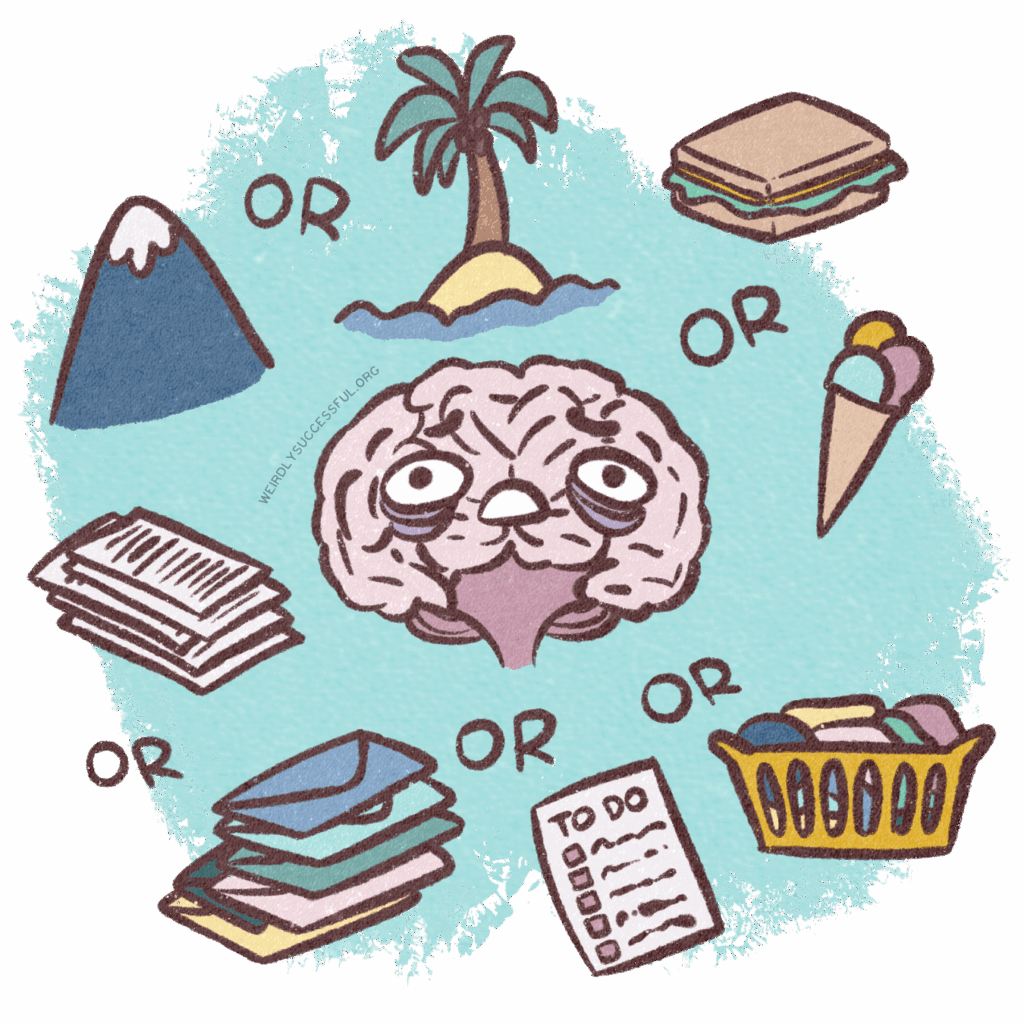What is decision fatigue?
Decision fatigue refers to the deteriorating quality of decision-making after a long period of decision-making activity. It means you feel mentally exhausted from making too many choices.
When you’ve been picking between different options for a while, eventually, your brain gets tired and starts to make not-so-great decisions. The more choices you have to make, the worse your decision-making skills become.
How does decision fatigue affect everyday life?
Naturally, having difficulty making good decisions or making decisions at all can affect all sorts of things in life.
For example, a study found that when people get worn out from making choices, they start to lose self-control and make poor decisions in areas like health and money.1
Another study even showed that decision fatigue can make some people more likely to act unethically. 2
Decision-making and neurodivergence
ADHDers may exhibit reduced decision-making abilities and higher levels of decision fatigue compared to individuals without ADHD, and it can even show up in everyday situations when the choices to make are not life-altering. What you eat, wear, and which train to take to work – these are all tiny choices and making them adds up.
Researchers3 found that specific executive functions, such as working memory and inhibitory control, played a crucial role in explaining the relationship between ADHD symptoms and decision-making difficulties.
Autistic individuals also have to mitigate decision-making difficulties.4

How to prevent decision fatigue
It’s really important to find ways to give your brain a break.
You can reduce the number of decisions you have to make by creating flexible routines that support you, adjustments that guide you without having to think of them, and automated processes that make it easier for you to go through the day.
« Back to the index


